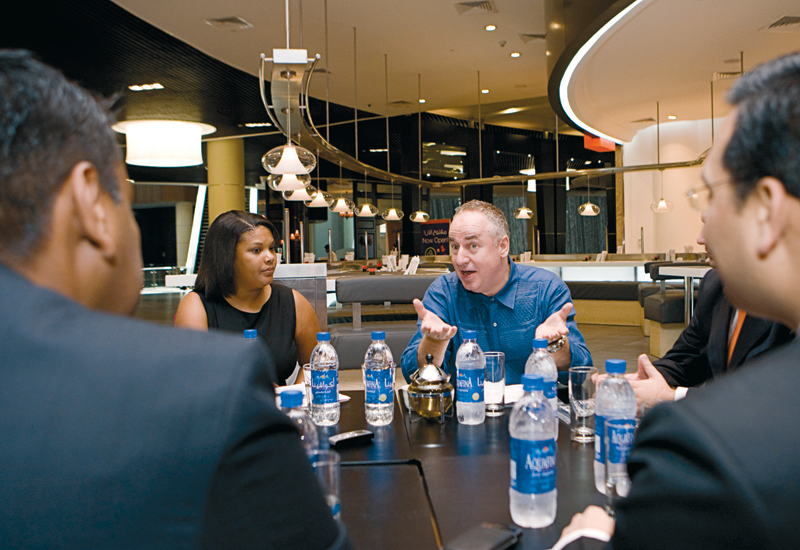Do service staff in this region lack personality?
Wills: I think the personalities are probably there, but with English in many cases a second or third language it can be difficult for someone to convey their emotions, personality and character to the customer. They have to choose their words wisely when describing a dish and sometimes staff will read from scripts; then they start sounding like robots, even if they don’t mean to.
Kumar: We have a Thai restaurant with some very good staff from Thailand, but it can be very difficult for them to communicate with the customers. Therefore I have put staff from different nationalities on the floor so they can communicate with different categories of guests.
We also insist on teaching staff Arabic and English. It’s important they know English 100%, but if we want to capitalise on the Middle East market we need staff to be able to converse in Arabic too.
Haj Ali: This is important — we are in an Arabic country, after all. In Dubai, Arabic has to be involved in everything and therefore we have to put translations on the menu, for example. Arabic speakers are also in high demand and we’ve placed more emphasis on that with our staff.
Anderson: The language barrier is definitely an issue, but my feeling is that smiles and body language are universal. If you smile you can hear it over the phone and if I smile at you, you will feel my sincerity. These types of things can be addressed at the start of employment, before addressing the language issue.

Advertisement
Would customer service improve if staff from more established hospitality markets such as Western Europe were encouraged to join Middle Eastern outlets?
Halima Anderson: I think a new set of problems would arise, different to the issues we currently face. I believe there would be minor issues and a lot of frustration, but generally I think service would improve. We would, however, have to pay them the same as they get in Europe to get them here.
Sunit Agale: It’s about give and take: you would have to give these staff the right packages. If you give them training and mentor them, in return you will get a quality service.
Would employing more local staff improve the standard of service across the region?
Kevin Wills: All those little nuances you have, for example placing knives and forks on the correct side, would benefit by at least having somebody on the floor that understands the guests better than anyone else. This would actually improve the service level and help the other associates who can learn from this experience.
Joachim Textor: It would be an option, but not many Emiratis want to work in kitchens. We have five nationals working in the hotel, but they’re in different departments, not in the kitchen.









 Search our database of more than 2,700 industry companies
Search our database of more than 2,700 industry companies









